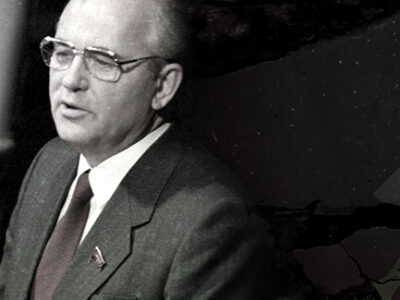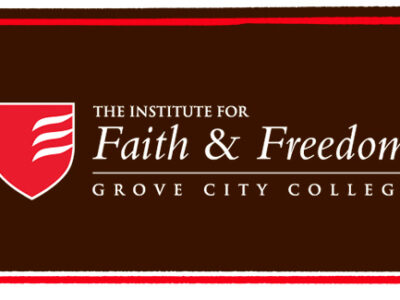When George W. Bush insisted that Iraqis, like Afghans before them, would go to the polls to elect their leaders, many of us were skeptical, and not unreasonably.
After all, the term “Muslim democracy” has seemed an oxymoron. Of all the areas in the world, the Arab-Muslim Middle East has been the least democratic. A 1999-2000 survey by Freedom House—done, importantly, before September 11, 2001—found that while 63% of nations are technically democracies, an astonishing zero of the 16 Arab countries in the Middle East were democratic; the worst rate on the planet.
Against those odds, George W. Bush has attempted to lay the groundwork for Middle East democracy in the two most unlikely, despotic places: the one-time Taliban’s Afghanistan and Saddam’s Iraq. If he achieves this democratization, how will history say he did it? At the proverbial tip of a bayonet—by military force issued in reaction to September 11.
In one of his most significant speeches, made in November 2003 before the National Endowment for Democracy, Bush claimed: “It should be clear to all that Islam … is consistent with democratic rule.” Actually, it is not clear at all. Quite the contrary.
And yet, now, after free elections first in Afghanistan, and then repeatedly in Iraq, first for the legislature, then to ratify the most liberal Constitution in the history of the Middle East, and now to elect a parliament, it looks like the so-called Dummy in the White House knew something.
Not only did they vote, they voted in huge numbers, with high turnouts, and under threats of horrible violence.
A December 15 Associated Press story reported that several rocket explosions were heard in Baghdad throughout the day; a mortar shell hit near a polling station in the northern city of Tal Afar; a bomb exploded in Ramadi; another bomb was detonated at a voting site in Fallujah; a mortar round struck about 200 yards from a polling place in Saddam’s hometown of Tikrit; and a grenade killed a school guard near a voting site in Mosul. Tens of thousands of Iraqi soldiers and police guarded polling centers. Bomb-sniffing dogs searched everywhere. And Iraqis walked miles to vote, as vehicles were banned because of threats of car bombs.
Not only did Iraqis persevere, but they did so in droves. Election officials were forced to extend voting for one hour due to long lines.
The press accounts remind me of those from January, when Iraqis voted for a national assembly. I vividly recall a The New York Times piece, which reported how maintenance workers swept up charred chunks of human flesh from around the feet of Iraqis who refused to leave their spots in line as they waited to cast ballots. In another incident, Iraqi terrorists suited up a Down’s Syndrome man with a suicide vest; anything to halt what Al-Qaeda ringleader Abu Musab al-Zarqawi deemed “the evil principle of democracy.” In all, 44 people in Iraq literally died to vote in January’s election, the victims of 38 separate bomb attacks on polling stations, in a voter turnout that exceeded America’s presidential election two months earlier.
So, how did that simpleton in the Oval Office—the Idiot-in-Chief as Michael Moore dubs him—get this one right? What’s his secret? The answer: the aspect of his character that, to many on the political left, makes him simple-minded: his religious faith.
George W. Bush is convinced that Iraqis, like Afghans, will vote because of an inherent yearning for freedom placed in their hearts by a loving God. It’s actually not a radical idea: Even Thomas Jefferson, the secular saint of modern liberalism, wrote that all human beings are endowed by their Creator with certain unalienable rights, among which is liberty. Iraqis would choose freedom, said Bush, because God had implanted the desire into their DNA. “I have said many times,” he reminded journalists in the Roosevelt Room on May 29, 2003, “that freedom … is the Almighty God’s gift to each and every individual. I firmly believe that.”
Of course, when George W. Bush made this claim, those who despise him reacted as if he were enunciating some kind of foreign, even fascistic, idea. In fact, Bush said nothing different than what had been said previously by the likes of Jefferson, Madison, Washington, Lincoln, Wilson, FDR, Truman, Kennedy, and so on. Or, take black American author Phyllis Wheatley, who in 1761 was dragged from her West African home as a child, and who George W. Bush quoted in a July 2003 speech in Senegal, Africa: “In every human breast,” said the slave girl, “God has implanted a principle which we call love of freedom.”
There’s more to the Bush vision: In that speech to the National Endowment for Democracy, Bush concluded: “The advance of freedom is the calling of our time; it is the calling of our country…. We [Americans] believe that liberty is the design of nature; we believe that liberty is the direction of history…. [T]his is, above all, the age of liberty.”
George W. Bush made a mistake there: he should have used the singular first person “I,” not “we,” since millions of Americans did not share his optimism for the Middle East. Now, millions of us marvel at how he got it right, and under enormous pressure to reverse course.




